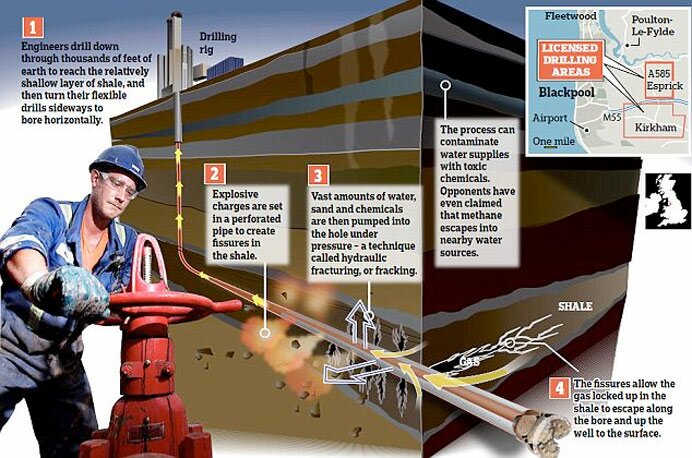Drilling and fracking has already been proven as the cause of several earthquakes.
The extraction of groundwater can alter local underground stress fields, risking subsidence or other seismic events. Indeed, fracking has been directly implicated in geological effects such as earthquakes: The United Kingdom’s only shale gas drilling project was suspended in 2011 after the British Geological Survey (BGS) recorded a 1.5 magnitude quake with the epicentre within two kilometres of a CSG exploration site near Blackpool, Lancashire. This followed a 2.3 magnitude quake that occurred close to a drilling site near Preston in the UK. In October 2011 the BGS confirmed these seismic events were a direct result of drilling and fracking activities by Cuadrilla Resources.
The Arkansas Geological Survey (AGS) and the Centre of Seismographic Information and Research at the University of Memphis conducted a study of the thousands of earthquakes that occurred in Faulkner County in Arkansas, United States, over the course of over a year. On February 27, 2011, the area was hit with a 4.7 magnitude earthquake. Researchers from AGS concluded that while there is no discernible link between earthquakes and gas production, there is ‘strong temporal and spatial evidence for a relationship between these quakes and the injection wells’. Seismic activity has almost ceased since the fracking stopped.

Shale gas extraction diagram - Copyright Daily Mail UK